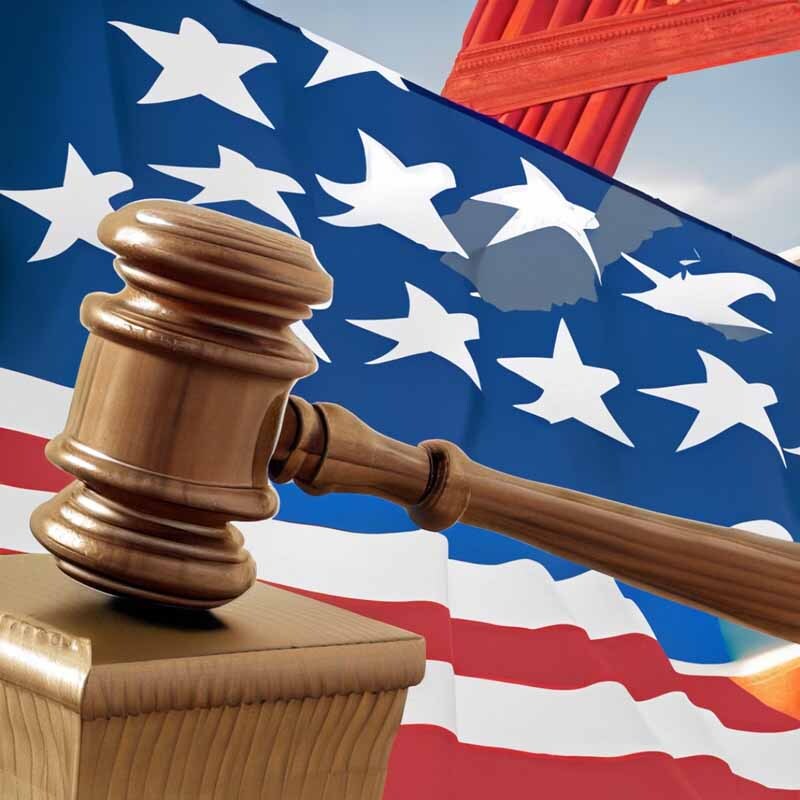 News Staff
News Staff![]() -
June 27, 2023 -
Business -
US Supreme Court
North Carolina Supreme Court
-
3.3K views -
0 Comments -
0 Likes -
0 Reviews
-
June 27, 2023 -
Business -
US Supreme Court
North Carolina Supreme Court
-
3.3K views -
0 Comments -
0 Likes -
0 Reviews

DLNews Law:
The ruling is the fourth in a row in which conservative and liberal justices unexpectedly joined to reject the most aggressive legal arguments by state elected officials and advocacy groups. Attorneys representing voting rights and other advocates applauded the decision.
Embracing the theory would have upended US elections by giving legislatures a blank check to set election rules without oversight. Experts warned it could also create serious election administration problems and spawn protected litigation.
The Court's Decision
The Court ruled that the North Carolina Supreme Court did not violate the elections clause of the US Constitution when it invalidated the state's 2022 congressional map.
The 6 to 3 vote decision rejected the broadest interpretation of a theory pushed by Republicans in Congress and supported by Trump. If the Court had embraced that theory, it could have transformed election law nationwide and given lawmakers at the state level enormous power to rig elections for Congress and the president.
Experts had warned that a ruling favoring the Republican position would also eviscerate checks and balances and give legislators cover to rig future elections.
Justices Clarence Thomas, Samuel Alito, and Neil Gorsuch dissented from the decision. Thomas wrote that the Court should not have considered the fringe legal theory because it would have put the Constitution's apportionment provisions at risk. He also argued that the Court should set a straightforward test for reviewing cases where state courts interpret state law in a way that implicates federal rights.
The Theory
The case centered around a gerrymandered congressional map in North Carolina. The map was crafted by Republicans in the state legislature to give their party an unfair advantage.
The state Supreme Court invalidated the map in February 2022 because it violated the state constitution. Republicans in the legislature argued that this violated their constitutional right to choose their representatives and urged the U.S. Supreme Court to take up the case.
But the justices instead rejected a much more far-reaching legal theory that could have dramatically changed how federal elections are run in every state. The fringe legal idea, called the independent state legislature theory, argues that the Constitution gives state legislatures sole power to regulate federal elections without state courts or governors' oversight. If adopted in its broadest form, the independent state legislature theory would have dangerous consequences for election law, voting rights, and our democracy.
The Court's Opinion
In a case involving North Carolina congressional districts, the Court ruled that the power to regulate federal elections belongs exclusively to state legislatures, not other entities. It rejected a broad legal theory pushed by former President Donald Trump supporters.
In his 6-3 decision, Chief Justice John Roberts wrote that the framers clearly understood that state courts have an independent obligation to evaluate legislative acts and laws. That includes directives that affect federal elections, he noted.
The legal theory argued by Republican lawmakers in North Carolina would have undermined the role of state courts and other state entities. It would have made it easier for rogue legislators to gerrymander elections and subvert democracy without any checks and balances from state courts, he wrote. Conservative Justices Clarence Thomas and Neil Gorsuch dissented from the majority opinion. They argued that the case should be dismissed due to significant developments since oral arguments. They also criticized the Court for rejecting their broader Independent State Legislature theory interpretation.
The Dissent
The Supreme Court rejected a legal theory pushed by North Carolina Republicans that would have stripped courts of their ability to be a check on state legislatures regarding redistricting and election laws. The fringe theory, the independent state legislature theory, contends that the Constitution grants state legislatures the exclusive power to regulate federal elections without the traditional oversight of courts and governors.
In a dissent that Justices Samuel Alito and Neil Gorsuch joined, Clarence Thomas wrote that the Court should have dismissed the case as moot because it had already ruled on the issue of gerrymandering in the past.
The majority opinion was written by Chief Justice John Roberts, who was joined by conservative Justices Brett Kavanaugh and Amy Coney Barrett and liberal Justices Elena Kagan, Sonia Sotomayor, and Ketanji Jackson Brown. The decision will not affect how North Carolina lawmakers draw congressional and legislative district maps this fall or impact the outcome of the 2024 elections.

Desert Local News is an invitation-only, members-based publication built on fact-checked, non-biased journalism.
All articles are publicly visible and free to read, but participation is reserved for members—comments and discussion require an invitation to join.
We cover local, state, and world news with clarity and context, free from political agendas, outrage, or misinformation.